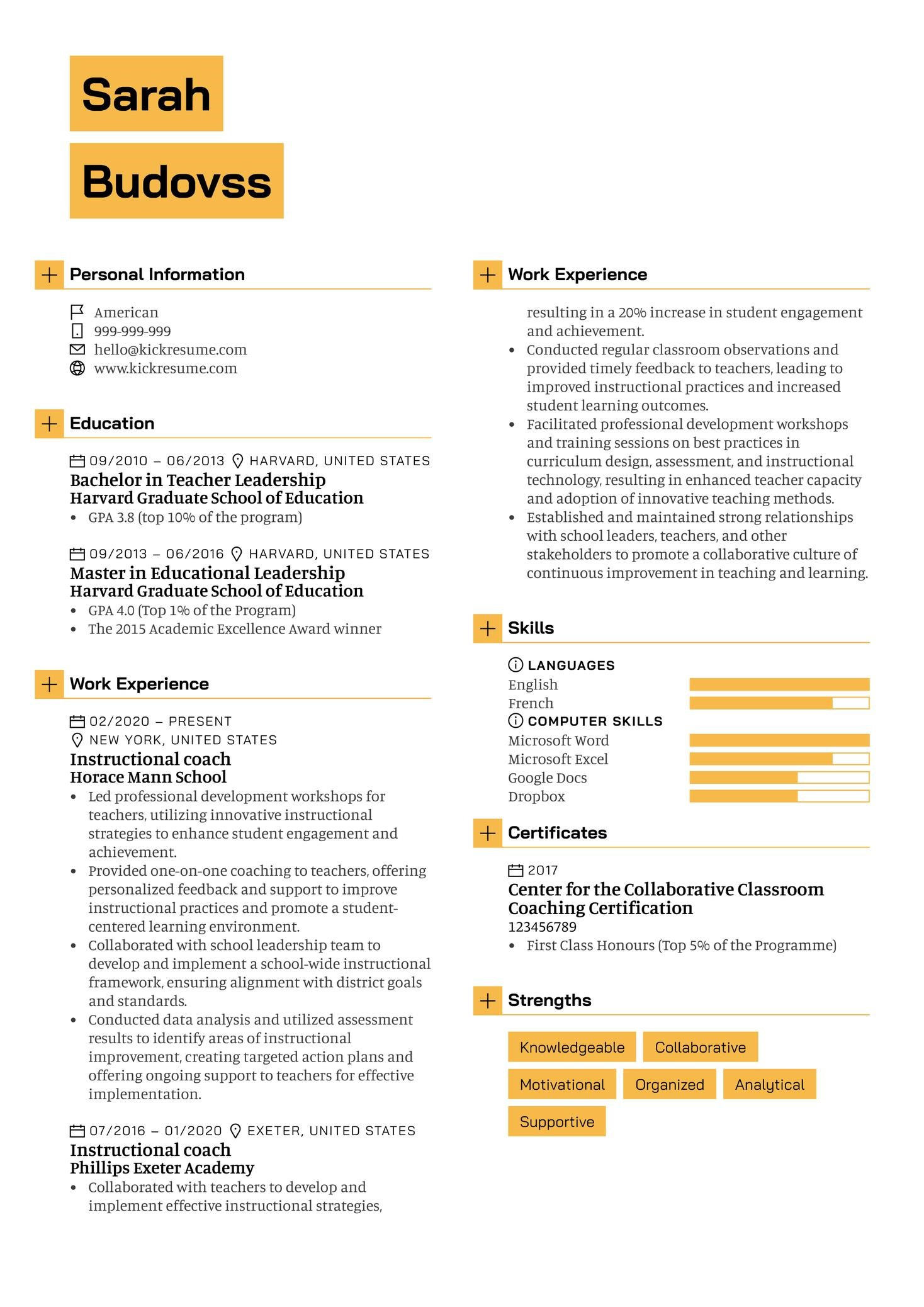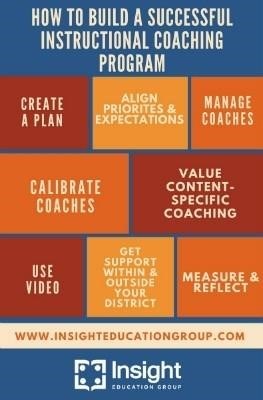What is an Instructional Coach in Education?
Instructional coaches are educational leaders who partner with teachers to enhance instruction and student learning. They provide support, mentorship, and professional development, fostering a culture of continuous improvement.
Defining the Role of an Instructional Coach
Instructional coaches act as mentors and facilitators, working collaboratively with teachers to refine their teaching practices. Their role extends beyond simple observation; they actively engage in co-planning lessons, modeling effective strategies, and providing tailored feedback. This support encompasses various aspects of teaching, from classroom management and curriculum design to assessment strategies and the integration of technology. Unlike traditional supervisors, instructional coaches focus on building teacher capacity and fostering a growth mindset, ultimately aiming to improve student learning outcomes. The core of their work centers on building relationships, trust, and a shared commitment to continuous improvement within the school community. They are catalysts for positive change, empowering educators to become more effective and confident in their roles.
Key Responsibilities and Tasks
Instructional coaches undertake a diverse range of responsibilities to support teachers and improve student learning. These include observing classroom instruction, providing constructive feedback, and co-planning lessons to enhance teaching strategies. They often lead professional development workshops, model effective teaching techniques, and analyze student assessment data to identify areas for improvement. Furthermore, they facilitate collaborative learning among teachers, creating a supportive environment for sharing best practices and addressing common challenges. A crucial aspect of their role involves helping teachers implement new educational technologies and aligning their teaching with district curriculum standards. Data analysis and the development of action plans based on data findings are also key components of an instructional coach’s work.
The Impact on Student Learning
The presence of an effective instructional coach significantly impacts student learning outcomes. By supporting teachers in refining their instructional practices, coaches indirectly, yet profoundly, influence student achievement. Improved teaching methods, informed by data analysis and collaborative planning, lead to more engaging and effective lessons. This, in turn, fosters a deeper understanding of concepts and improved student performance on assessments. Furthermore, a focus on teacher well-being and professional growth, facilitated by the coach, creates a positive learning environment conducive to student success. The ripple effect of improved teacher skills and morale translates into enhanced student engagement, motivation, and ultimately, academic progress. The ultimate goal is to create a more equitable and effective learning experience for all students.
Skills and Qualifications of an Instructional Coach
Instructional coaches require strong teaching experience, excellent communication and interpersonal skills, data analysis expertise, and a commitment to continuous professional development.
Necessary Educational Background
A strong educational background is crucial for instructional coaches. While specific requirements vary by district and school, a minimum of a Bachelor’s degree in education or a related field is generally expected. Many successful coaches hold a Master’s degree in education, curriculum and instruction, educational leadership, or a related specialization. Advanced degrees like an EdD or PhD in education are increasingly valued, particularly for leadership roles within larger districts or systems. These advanced degrees often provide specialized training in areas such as instructional design, assessment, and data analysis – skills highly relevant to the coaching role. Continuing education and professional development are also vital to remain current with best practices and emerging trends in education. The pursuit of relevant certifications, such as those offered by professional organizations, can enhance credibility and expertise.
Essential Soft Skills and Personal Attributes
Beyond formal education, effective instructional coaches possess a unique blend of essential soft skills and personal attributes. Strong interpersonal skills are paramount, enabling them to build rapport and trust with teachers. Excellent communication skills, both written and verbal, are needed to provide constructive feedback and facilitate collaborative discussions. Empathy and active listening are crucial for understanding teachers’ perspectives and challenges. Problem-solving skills are essential for identifying and addressing instructional roadblocks. Furthermore, organizational skills are vital for managing multiple priorities and responsibilities effectively. A growth mindset, coupled with a commitment to continuous learning, ensures coaches adapt to evolving educational needs and maintain their effectiveness. Finally, resilience is critical, as instructional coaching often involves navigating complex dynamics within a school environment.
Content Area Expertise
While not always a strict requirement, content area expertise significantly enhances an instructional coach’s effectiveness. A strong understanding of specific subjects allows for more targeted support and collaboration with teachers. This expertise enables coaches to offer practical advice, model effective teaching strategies within specific content areas, and analyze curriculum materials critically. Coaches with subject-matter knowledge can better understand the nuances of teaching particular subjects and offer tailored solutions to individual teacher challenges. This depth of understanding fosters credibility and trust among teachers, leading to more productive partnerships and improved student outcomes. However, a focus on pedagogical skills and effective coaching strategies remains crucial regardless of specific content expertise.

The Instructional Coaching Process
Instructional coaching involves collaboration, data analysis, and modeling effective teaching practices to enhance teacher skills and student learning. It’s a continuous cycle of observation, feedback, and improvement.
Collaboration with Teachers
Effective instructional coaching hinges on strong collaboration with teachers. This partnership begins with open communication and a shared understanding of goals. Coaches work alongside teachers, observing lessons, providing constructive feedback, and co-planning future instruction. They act as facilitators, guiding teachers to reflect on their practice and identify areas for growth. This collaborative approach fosters a supportive environment where teachers feel comfortable seeking assistance and sharing their challenges. The coach’s role is not to dictate, but to empower teachers to become more effective educators. Through this collaborative process, teachers develop a deeper understanding of their strengths and weaknesses and gain the confidence and tools to improve student outcomes. This joint effort ensures that the professional development is tailored to the specific needs and context of each teacher, maximizing its impact.
Data Analysis and Feedback
Instructional coaches play a crucial role in analyzing student assessment data and providing targeted feedback to teachers. They assist in interpreting complex data sets, identifying trends, and pinpointing areas where students are struggling. This data-driven approach allows for informed decision-making regarding instructional strategies and interventions. Coaches help teachers translate data into actionable steps to improve teaching practices. Feedback is delivered constructively, focusing on strengths and areas for growth. The process emphasizes a collaborative approach, with the coach and teacher working together to develop tailored strategies to address specific student learning needs. This data-informed feedback loop ensures that instructional practices are aligned with student needs and continuously refined to optimize learning outcomes. The ultimate aim is to enhance the effectiveness of instruction and improve student achievement.
Modeling Effective Teaching Practices
A key aspect of an instructional coach’s role involves demonstrating effective teaching strategies. Coaches model best practices in the classroom, showcasing various instructional techniques and classroom management strategies. This hands-on approach allows teachers to observe and learn from experienced educators. By actively modeling, coaches provide a concrete example of effective teaching, making abstract concepts tangible and easily applicable. They might showcase innovative lesson planning, differentiated instruction, or student-centered learning environments. Through observation and demonstration, coaches help teachers refine their skills and incorporate new methods into their own teaching. This modeling process enhances teacher confidence and empowers them to implement evidence-based practices that benefit all learners.
Benefits and Challenges of Instructional Coaching
Instructional coaching offers significant benefits to teachers and students, improving instruction and student outcomes. However, challenges include time constraints, resource limitations, and resistance to change.
Positive Impacts on Teacher Development
Instructional coaching significantly enhances teacher development by providing individualized support and targeted professional development. Coaches offer tailored feedback, helping teachers refine their instructional strategies and classroom management techniques. This personalized approach fosters a growth mindset, encouraging teachers to experiment with new teaching methods and adapt their practices to meet diverse student needs. Through collaborative planning and co-teaching, coaches model effective teaching practices, providing teachers with practical examples they can implement in their own classrooms. The ongoing support and mentorship offered by coaches build teacher confidence and efficacy, leading to increased job satisfaction and reduced teacher burnout. Moreover, the focus on data-driven instruction empowers teachers to make informed decisions about their teaching, leading to measurable improvements in student learning outcomes. The result is a more skilled, confident, and engaged teaching workforce better equipped to meet the challenges of modern education.
Challenges and Limitations
Despite the significant benefits, instructional coaching faces several challenges. Limited time for coaching sessions due to competing demands on teachers’ and coaches’ schedules can hinder the effectiveness of the process. Resistance from some teachers to outside input or a lack of buy-in to the coaching philosophy can create obstacles. Inconsistency in the quality of coaching across different schools or districts can lead to uneven implementation and less impactful results. Furthermore, accurately measuring the impact of coaching on student learning outcomes can be difficult, requiring robust data collection and analysis methods. A lack of adequate resources, including sufficient funding for professional development and coaching training, can also limit the reach and impact of coaching programs. Finally, the evolving nature of education and the rapid advancement of technology require coaches to continually update their knowledge and skills to remain effective in supporting teachers.
The Evolving Role of the Instructional Coach
The role of the instructional coach is dynamically evolving to meet the changing needs of educators and students. With the increasing integration of technology in education, coaches are now expected to be proficient in using and supporting the implementation of various educational technologies. Furthermore, the emphasis on data-driven decision making requires coaches to possess strong analytical skills and the ability to interpret and use data to inform instructional practices. The focus on social-emotional learning (SEL) has also expanded the coach’s role to include supporting teachers in fostering positive classroom climates and addressing students’ social and emotional needs. The rise of personalized learning and differentiated instruction further necessitates coaches’ expertise in designing and implementing flexible learning experiences tailored to individual student needs. Finally, the growing recognition of the importance of teacher well-being has led to an increased focus on supporting teachers’ mental health and providing professional development focused on stress management and self-care.
Becoming an Instructional Coach
Aspiring instructional coaches often pursue advanced degrees in education, coupled with relevant experience and professional development focused on coaching methodologies and leadership skills.
Educational Pathways and Certifications
The path to becoming an instructional coach often involves a Master’s degree in Education or a related field. Many pursue an MEd in Curriculum and Instruction, Educational Leadership, or a similar specialization. Some may even opt for a doctorate, such as an EdD, to enhance their credentials and expertise. Specific certifications aren’t universally mandated but can significantly boost career prospects. These might include certifications in instructional coaching, leadership, or specific pedagogical approaches. Professional development opportunities, such as workshops and conferences focused on coaching best practices, are highly valuable for both aspiring and experienced instructional coaches. These opportunities provide continuous learning and refinement of skills. The combination of advanced education, relevant certifications, and ongoing professional development demonstrates a commitment to excellence in the field.
Professional Development Opportunities
Continuous professional development is crucial for instructional coaches to remain effective and adapt to evolving educational needs and research. Numerous avenues exist for ongoing learning. Organizations like ASCD (Association for Supervision and Curriculum Development) offer workshops, conferences, and online resources focused on instructional coaching strategies and best practices; Many universities and colleges provide professional development courses and certificate programs specifically designed for instructional coaches. These often cover topics such as data analysis for instructional improvement, effective feedback techniques, and building collaborative relationships with teachers. Networking with other instructional coaches through professional organizations and online communities provides valuable opportunities for sharing best practices, seeking mentorship, and staying current with emerging trends in the field. Active participation in these opportunities ensures coaches remain at the forefront of educational innovation.
Networking and Mentorship
Building a strong professional network is vital for aspiring and practicing instructional coaches. Joining professional organizations like the Association for Supervision and Curriculum Development (ASCD) provides access to experienced coaches, resources, and collaborative opportunities. Attending conferences and workshops allows for valuable networking and the exchange of best practices. Seeking mentorship from established instructional coaches can provide guidance, support, and insights into navigating the challenges and rewards of the role. Mentors can offer advice on effective strategies, help with problem-solving, and share their experiences in building positive relationships with teachers and administrators. Online communities and forums dedicated to instructional coaching offer additional avenues for networking and collaboration, fostering a sense of shared purpose and collective learning among professionals in the field. These connections are invaluable for continuous growth and improvement.

The Future of Instructional Coaching
Instructional coaching will continue evolving, integrating technology and focusing on personalized learning experiences. Ongoing professional development will remain crucial for success in this dynamic field.
Emerging Trends and Technologies
The landscape of instructional coaching is rapidly changing, influenced by technological advancements and evolving pedagogical approaches. One significant trend is the increased use of data analytics to inform coaching practices. Instructional coaches are leveraging data from various sources, including student assessment results, to identify areas needing improvement and tailor their support accordingly. Furthermore, the integration of technology into classrooms necessitates coaches’ expertise in utilizing educational software and online platforms effectively. Coaches are becoming proficient in using digital tools to facilitate collaboration, provide feedback, and model effective technology integration strategies for teachers. The rise of personalized learning further emphasizes the role of instructional coaches in supporting teachers’ efforts to differentiate instruction and cater to diverse learners’ needs. This demands coaches to stay abreast of the latest technological tools and resources that can enhance personalized learning experiences.
The Importance of Ongoing Professional Development
Continuous professional development is paramount for instructional coaches to remain effective and relevant in their roles. The field of education is constantly evolving, with new research emerging, innovative teaching methodologies being developed, and technological advancements impacting classroom practices. To stay abreast of these changes, instructional coaches must actively engage in ongoing professional learning opportunities. This may involve attending conferences, workshops, and seminars; participating in online courses and webinars; engaging in collaborative learning with colleagues; and actively seeking mentorship from experienced coaches. Furthermore, reflecting on their own coaching practices and seeking feedback from teachers and administrators is crucial for continuous improvement. By prioritizing ongoing professional development, instructional coaches ensure they can provide high-quality support to teachers and contribute to a culture of continuous improvement within their schools.
